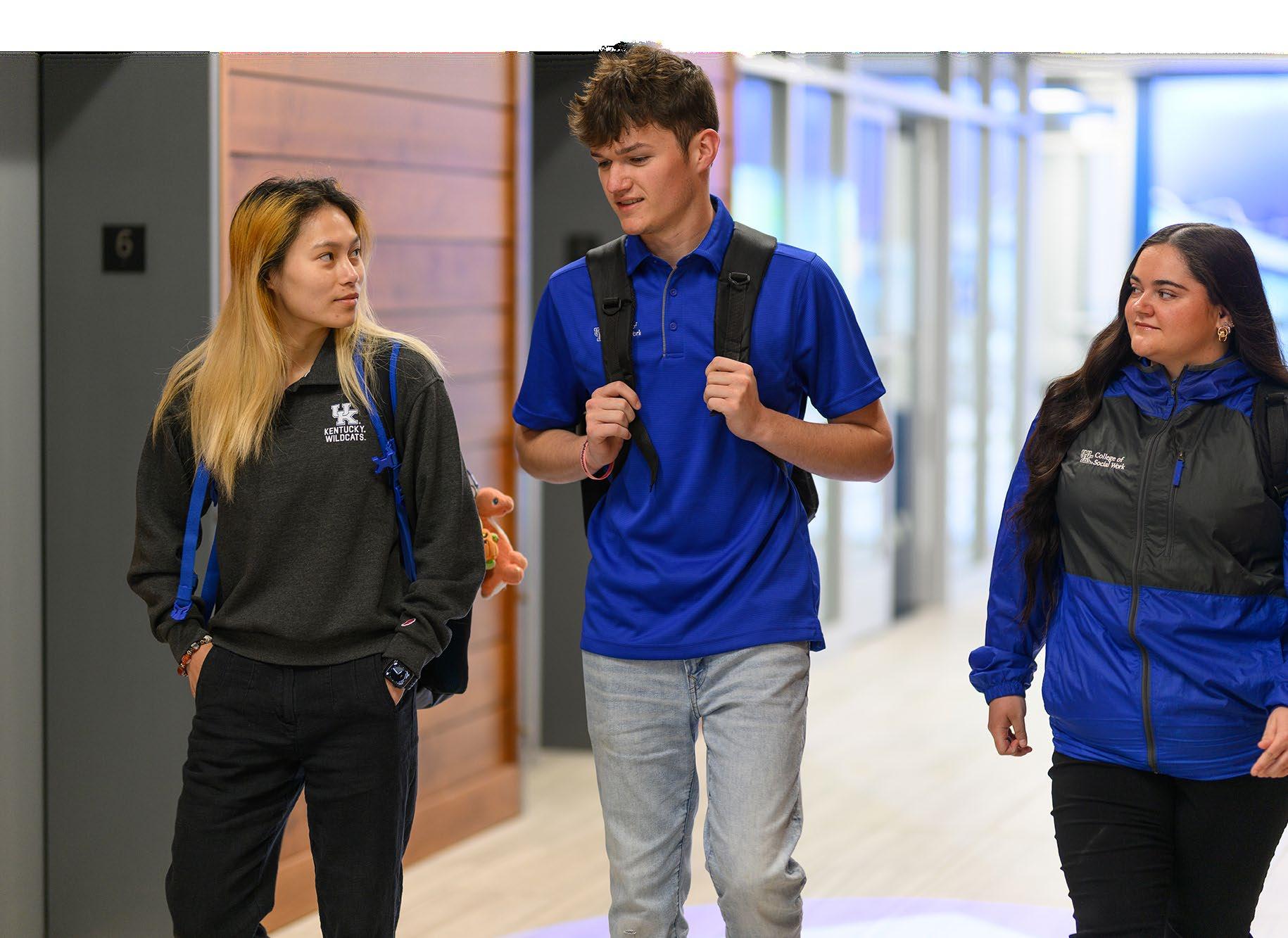





The Criminal Justice Graduate Handbook contains general information about the University of Kentucky and the College of Social Work, including our mission, policies, and organizational resources. This handbook is intended to be a quick reference for students and is not intended to be comprehensive or to address all the possible applications of, or exceptions to, the general policies and resources described.
The procedures and policies described here may be modified or discontinued from time to time. Every effort will be made to inform students of such revisions. It is the student’s responsibility to thoroughly review college and university policies in detail and to request any clarification needed.
Students should consult the Graduate Catalog, their academic advisor, or program director if there are questions about any of the topics addressed.
University of Kentucky
College of Social Work
Office of the Dean
619 Patterson Office Tower
Lexington, KY 40506
P: 859-257-6650
F: 859-323-1030
socialwork.uky.edu
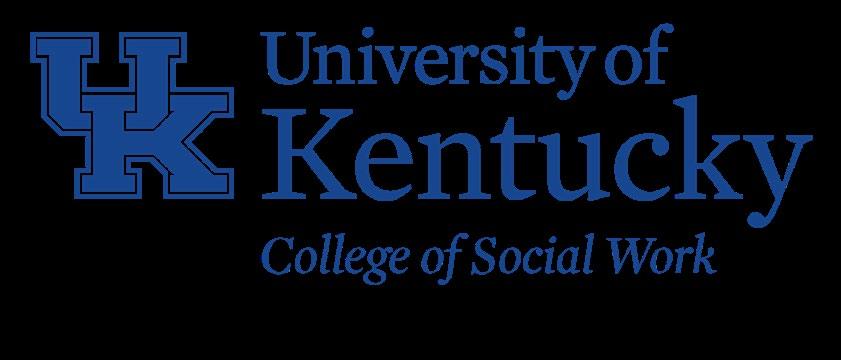
Welcome!
I am so pleased that you are interested in our Big Blue Nation’s Master of Science in Criminal Justice. The Master of Science program provides the necessary skills to those wishing to begin or advance a criminal justice career. Criminal justice is not only a rewarding career path, but one of the fastest growing career fields in the nation. The Criminal Justice program is designed to cultivate the necessary skills to enhance student’s professional skills and reinforce their commitment to improving the lives of individuals and communities.
The College of Social Work’s Master of Science in Criminal Justice provides a dynamic curriculum taught by invigorative criminal justice scholars and practitioners who are committed to enhancing the lives of others. Through online course offerings, the criminal justice program provides support and flexibility for students pursuing their education full-time or part-time. With an emphasis placed on experiential learning, justice administration, and reasoning skills, there are multiple opportunities for students to grow and develop into wellrounded professionals and/or advance existing skills in pursuit of advancement in current criminal justice careers.
People who are dedicated and passionate critical thinkers are essential to the criminal justice profession. We look forward to supporting you in seeking a graduate degree and advancing your criminal justice career.
Director, Criminal Justice Programs
University of Kentucky
College of Social Work
677 Patterson Office Tower Lexington, KY 40506
victoria.collins1@uky.edu
859-257-4940
Name Title Phone Email
Jay Miller Dean
Victoria Collins CJ Program Director
Matt Moore
859-257-6650 xana.plum@uky.edu
859-257-4940 victoria.collins1@uky.edu
Associate Dean of Academic and Student Affairs 859-323-0586 mamo320@uky.edu
Jaime Wainscott Director of Advising
Kyle Phillips CJ Advisor
Gary Trumble IT Manager
859-257-6657 jaime.wainscott@uky.edu
859-257-9558 kyle.phillips@uky.edu
859-257-6662 trumble@uky.edu
College Site: https://socialwork.uky.edu/academics/mscj-program/
Full College of Social Work directory: https://socialwork.uky.edu/college-directory/
The University of Kentucky College of Social Work promotes community and individual well-being through translational research and scholarship, exemplary teaching, and vital community engagement. The College is committed to the people and social institutions throughout Kentucky, the nation, and the world. The College, like the University, is an organization that cultivates a diverse academic community characterized by interpersonal fairness and social justice. The College is fiercely committed to developing outstanding professionals and scholars - leaders who will serve individuals, families, and communities through innovative and effective practices guided by cultural competency, systematic ethical analysis, and a keen and pragmatic understanding of the human condition.
The Criminal Justice program at the University of Kentucky seeks to prepare effective, competent, criminal justice practitioners who are ethical, engaged, culturally aware and informed agents for social change.
At the conclusion of the program, students will be able to:
Apply theoretical, cultural, and perceptual frameworks to criminal justice practice.
Recognize the impact of theories, policies, and scientific inquiry on implementation of services and associated outcomes.
Identify and address systematic barriers in justice involved systems through identifying and addressing systemic injustices in the criminal justice system.
Critically examine and employ leadership theories and skills in managing and leading criminal justice organizations.
The Master of Science (MS) in Criminal Justice provides a comprehensive understanding of the integration of theory, policy, and research within leadership and administrative roles in criminal justice systems. The MS cultivates critical thinking in examining the synthesis of social and legal systems, structures, and institutions in implementing and evaluating outcomes.
The CJ degree prepares students for careers as administrators in public and private criminal justice settings including advocacy, probation and parole, re-entry, prosecution and enforcement, correctional facilities, and court systems, among others.
The MSCJ is a fully online asynchronous program. The University of Kentucky requires students to earn a minimum of 30 hours with a minimum cumulative grade point average (GPA) of 3.0. Students may take additional hours in accordance with stated University policy. The University of Kentucky also requires a comprehensive exam that students will take just prior to the completion of their program and must pass to be able to graduate.
The MS has a total of 18 core credit hours that can be taken over the course of two or more semesters, along with 12 hours of guided electives.
In order to provide a depth of learning connected to the student’s area of interest, students must complete 12 credit hours of guided electives. These electives must be oriented to criminal justice (such as a course on substance misuse) although they do not necessarily have to be a criminal justice course.
While the accelerated model is shown, students can take as few as one course per semester and plan the program at a pace that makes sense to their
This course presents ethical frameworks that are widely used and applied in the criminal justice system. Ethical dilemmas and issues of morality within the criminal justice system are presented and analyzed. Students will apply ethical frameworks within the context of administrative leadership in criminal justice settings.
This course introduces systematic approaches related to scientific thinking necessary for building knowledge and evaluating information. Students will engage in the ethical use of scientific inquiry, understanding of quantitative and qualitative methodologies, and use of research for understanding effectiveness of programs.
Theory is a tool for understanding behavior and the systems designed to intervene or address criminal conduct. This course examines theory as it relates to structures, policies, and practices in criminal justice settings. Theory creates a foundation for assessment and change.
This course examines administrative and leadership practices in criminal justice settings with an emphasis in public, for profit, and nonprofit settings. Common themes such as management and supervision, effective use of personnel and fiscal resources, consultation, and professional development of staff will be examined.
This course emphasizes criminal justice policies and policy making processes. The history, services, and associated programs are critically analyzed in the context of analytic frameworks with regard to social welfare policies and services. The interdisciplinary efforts of the social, political, legal, economic, and administrative processes which are vital to policy making at all levels are examined.
This course examines the practical application of data analysis in criminal justice settings. Students will learn to run basic analyses while understanding the role of analytics in the context of criminal justice settings. Students will apply critical thinking to understand and evaluate use of analyses in program evaluation.
Plus, an additional 12 credit hours of specifically targeted criminal justice related electives.
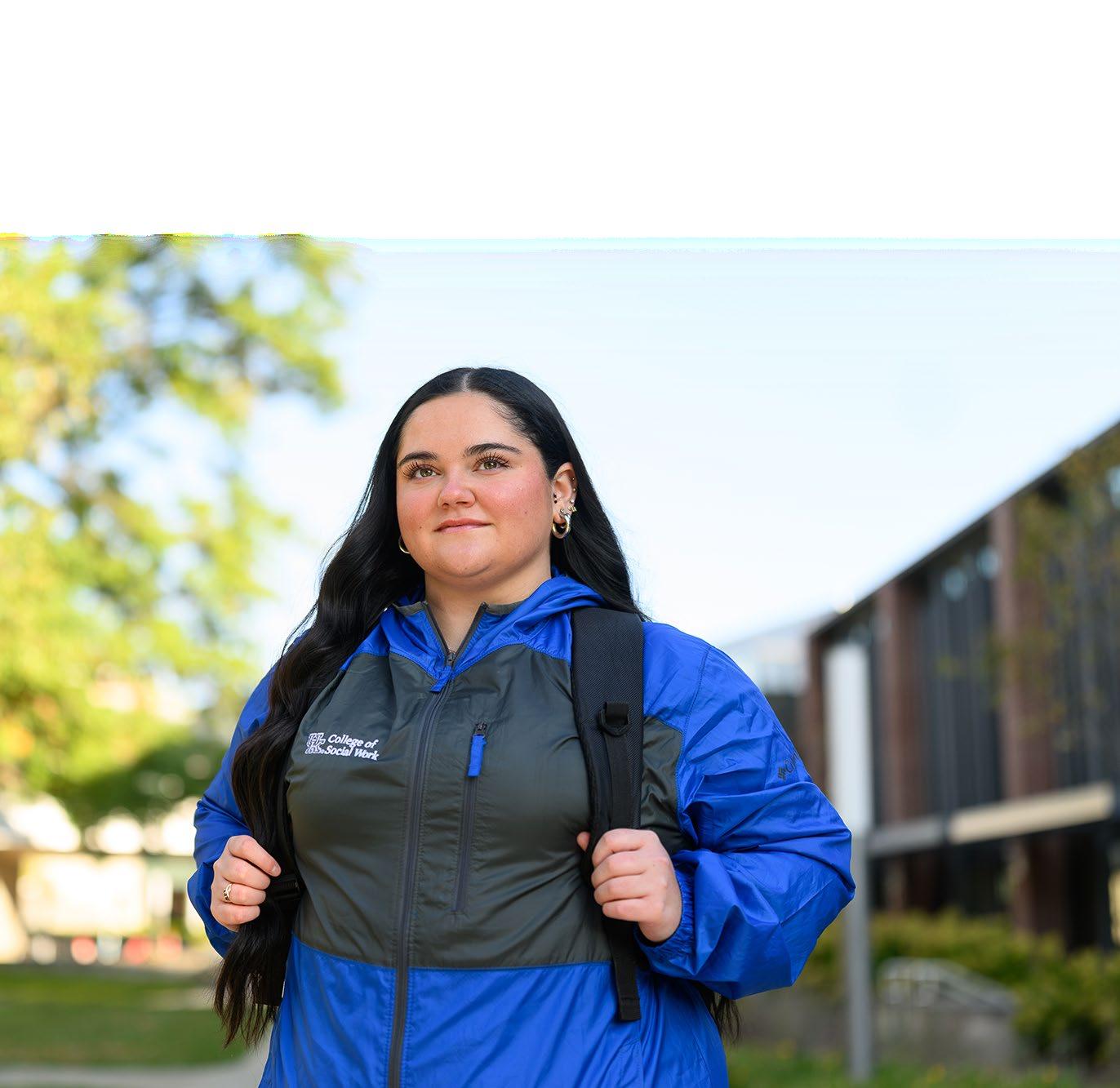
Academic advising is a key component of student success at the College of Social Work. Each student is assigned a professional academic advisor who provides personalized guidance throughout their academic journey. Advisors are certified in Appreciative Advising and use a proactive, integrative advising approach that includes academic planning, policy navigation, and ongoing support to help students overcome challenges and achieve their educational goals.
While regular advising meetings are not required unless a student is on academic probation or has specific concerns, all graduate students are encouraged to connect with their advisor as needed. Advisors are available through in-person, online, and phone appointments, all of which can be scheduled via the myUK Graduation Planning System (GPS). This supportive advising model helps ensure students stay on track and have access to the guidance and resources needed to achieve their academic goals. Visit the Academic Advising webpage for additional information and academic planning resources. https://socialwork. uky.edu/academics/academic-advising/
Information about registration dates, adding or dropping a class, or withdrawing from the university can be found on the registrar’s webpage: https://registrar.uky.edu/registration
Students schedule Academic Advising meetings in myUK Graduation Planning System (GPS). To Access GPS, log into myUK (https://myuk.uky. edu/irj/portal) and go to “Degree Planning and Registration.” Once in myUK GPS, students should see their assigned advisors with a link to make an appointment. Click the “make appointment” button to open the advisor’s calendar and schedule an appointment. In person, online, and phone appointments are available.
With few exceptions, the maximum load to be carried by a graduate student is 15 credit hours during the fall and spring and six credit hours during summer. A graduate student in the College of Social Work may be permitted by the Director of Graduate Studies to exceed the maximum credit hours in a term. The determination is made based upon the student’s past academic performance and the proposed course load.
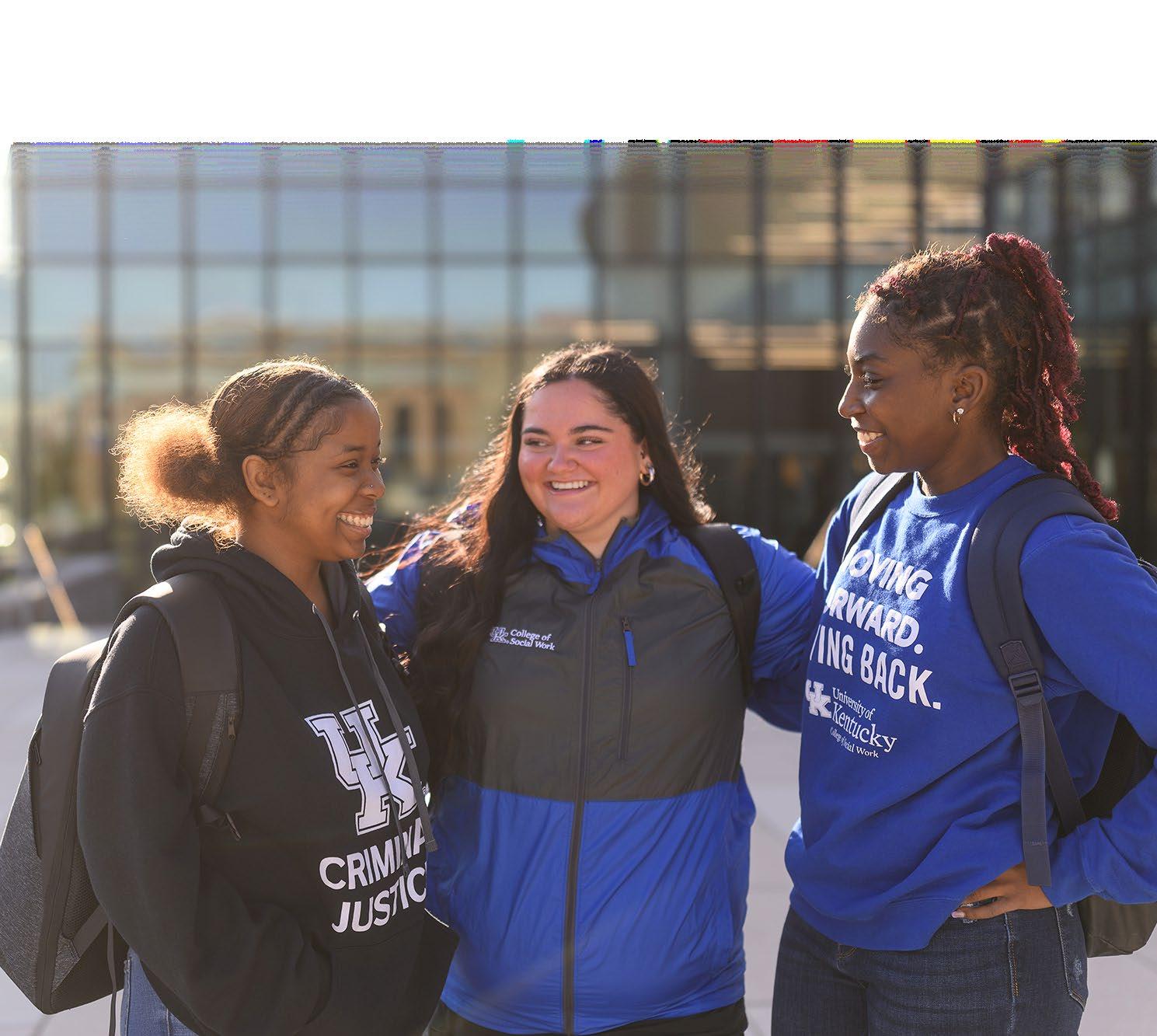
For information about UK’s policy on probation, dismissal, and reinstatement, please review the University Catalog.
When students have completed 12 or more semester hours of graduate course work with a cumulative GPA of less than 3.00, they will be placed on scholastic probation. Students will have one full-time semester or the equivalent (9 hours) to remove the scholastic probation by attaining a 3.00 cumulative GPA. If probation is not removed, students will be dismissed from the program. Students placed on scholastic probation are not eligible for fellowships or tuition scholarships and may not sit for master’s final examinations.
Students who have been dismissed from the MSCJ program and the Graduate School may apply for readmission after two semesters or one semester and the summer term. If they are accepted by the program, admitted students will have one full-time semester or the equivalent (9 hours) to remove the scholastic probation by attaining a 3.00 cumulative GPA.
All graduate students have the option to retake one completed course. The repeat option provides students with the opportunity to take a class again and removes the lower grade from the calculation of the student’s GPA. The limit of one repeat option holds for a student’s entire graduate career. Students exercising the repeat option must consult with their academic advisor to complete a repeat option request form.
An incomplete grade in a course can only be assigned when students have a non-academic disruption in their semester that results in an inability to complete some of the assignments in the normal course of the semester. Academic Policies at the University of Kentucky stipulate students may only request an Incomplete when there is an expectation for the remaining work to be completed within the identified time frame with
a passing grade. To establish the possibility of a passing grade, the College of Social Work requires that students demonstrate a modicum of success as evidenced by a passing grade at the midpoint of the semester. As such, policies regarding excused absences will be enforced including the communication requirement of contacting an instructor within one week of a missed assignment due to an excused absence. If a student is not passing the course at mid-semester, that student will not be eligible for an Incomplete and should discuss options with their advisor. Until all work has been completed and a final grade is submitted, a student receiving an Incomplete grade will not be allowed to enroll in any course in which their Incomplete course is a prerequisite.
Students must initiate the process of requesting an Incomplete by contacting the instructor and securing approval within the final two weeks of the semester. Students must submit the Incomplete form with identified missing assignments and associated due dates and their signature to the instructor no later than the last day of classes for the semester. Students should plan to address all work identified in the Incomplete form prior to the start of the next semester unless otherwise specified in the form. Any course with an incomplete grade that is not resolved within a year will automatically revert to an E, per UK’s regulations.
Upon approval of the DGS, a total of 9 hours (or 25% of regular course degree requirements, whichever is greater) may be transferred into a Master’s degree program. The transferable hours include all post-baccalaureate work, graduate work taken at another regionally accredited university, or as a student in another graduate program at the University of Kentucky. The following rules also apply to credit transfer:
• Course credits applied toward a previously awarded graduate degree cannot be transferred.
• Transfer of independent work, research, thesis, or dissertation credit is not permitted.
• Short courses lasting fewer weeks than the number of credits may not be transferred.
• A student must have been in graduate status at the time the courses were taken.
• A student must be in good academic standing at the time of transfer.
• Only courses assigned a B grade or better can be transferred.
• Courses must have been taken no more than 10 years (masters) prior to the semester the transfer is requested.
• Transfer of external credit cannot be applied to a graduate certificate.
You can find the above policy in UK’s Graduate School’s most current catalog.
The College of Social Work follows the rules of the university as administered by the Registrar’s office for withdrawals and registrations. Students are able to drop or withdraw from courses in myUK up until the withdrawal deadlines for the course. Drop and withdrawal deadlines can be found in the academic calendar and in the course information in myUK, Students withdrawing from all courses after the first day of classes will need to go through the Registrar’s office to process the withdrawal. Instructions for a complete withdrawal can be found here: https://registrar.uky.edu/withdrawal. After the withdrawal deadline for a course has passed, students need to go through their college for other withdrawal options.
A student may withdraw from a class or from the University after the withdrawal period but through the last day of classes for the semester/session/ term upon approval by the dean of the student’s college of a petition certifying urgent nonacademic reasons including but not limited to:
• illness or injury of the student.
• serious personal or family problems.
• serious financial difficulties; or
• having excused absences for the dates and times associated with more than one-fifth of the required interactions in a course.
Source: UK Catalog, Academic Requirements: http://catalogs.uky.edu/
To pursue a post mid-term course withdrawal, students should first contact their academic advisor. Advisors will provide students with the needed forms and assist students with submitting the request through the dean’s office for review and processing.
Students seeking a withdrawal after the end of the semester should work with their academic advisor to submit requests for retroactive withdrawals. More information regarding retroactive withdrawals is available via the Registrar’s office.
All incidents of academic dishonesty are taken seriously at the University of Kentucky, and there are specific policies and procedures in place to prosecute them. A student accused of an academic conduct offense may not withdraw from the class in which the academic conduct violation is alleged to have occurred.
If a student is formally accused of and found responsible for an academic offense, the individual will be informed in writing and given 10 days to appeal the ruling by contacting the Office of the Academic Ombud. Penalties for academic offenses may range from a zero on the assignment (for a first offense) to suspension or expulsion. A student charged with an academic offense may contact the Academic Ombud for an explanation of the procedural steps in cases involving academic offenses, including the processes for appealing one’s responsibility or the severity of the sanction being imposed.
Office of Academic Ombud Services, Academic Integrity: Cheating and Plagiarism
https://ombud.uky.edu/students/what-plagiarism
https://ombud.uky.edu/students/what-cheating
https://ombud.uky.edu/students/academicmisconduct-process
When an instructor determines that a student may have plagiarized or cheated, the instructor will notify the student and request the student meet with the course instructor and the program director (or a designated faculty member) regarding what happened, thus allowing the student an opportunity to explain. Academic dishonesty includes but is not limited to, cheating, piracy, plagiarism, fabrication, multiple submissions, and complicity in academic dishonesty including posting content to websites for other students to use. Students must respond within 10 days to schedule a meeting to review
the issue(s). At a minimum, if a student commits academic dishonesty, a zero will be allocated for that assignment with other penalties possible including failing the course or being terminated from the program.
Within seven working days after the meeting, or if a student chooses not to meet, the instructor will notify the student whether the student’s action constitutes an academic offense, and if so, the penalty imposed and the student’s right to appeal.
The student then has ten working days to contact Academic Ombud Services to appeal the instructor’s determination that the student committed an academic offense. Once the appeal has begun, the burden of proof is on the instructor. Please see How to Appeal an Academic Offense for more information on the process.
If, after ten working days, the student does not appeal, the Academic Ombud will inform the Registrar and the Registrar will keep a record of the offense. The Registrar will reveal the existence of the offense only if the student authorizes the release of the record or a court-ordered subpoena seeks the student’s entire academic record (not just a transcript). Requesting a transcript will not reveal the existence of the offense record.
It is critically important that the College of Social Work hear all student voices. If you have a concern, please complete the Student Concern Submission Form. All form submissions will be reviewed and receive follow-up as appropriate.
Students are required to file a formal Application for Degree at UK. Graduate students must apply online through the myUK portal. Students should apply for graduation if all their degree requirements are completed at the end of the term for which they apply.
The application deadline for undergraduate students is:
Spring degree completion – November 1
Fall degree completion – April 1
Summer degree completion – April 1
The diploma is mailed to the address provided on the Application for Degree. The diploma address is separate from the permanent address and changing one does not update the other. Information about graduation honors and diplomas can be found at https://registrar.uky. edu/myuk-gps/applying-degree
Information about commencement ceremonies can be found at https://commencement.uky.edu/
Students must successfully pass the comprehensive exam prior to graduation. The Masters final exam is is offered to MSCJ students in their last semester of the program, roughly two weeks prior to the anticipated graduation. Students will receive confirmation from the DGS that they have been scheduled as requested to sit for the exam, along with the date of the exam, and any procedural information. Students who fail the comprehensive exam will be permitted to sit for a retake of the exam. Students who fail the comp exam for the second time are dismissed from the program per Graduate School policy.
The Director of Graduate Studies is available to hear and respond to student concerns and grievances within the College of Social Work. The Dean of the College of Social Work is available following a consultation with the Director of Graduate Studies and Associate Dean for Academic and Student Affairs. Should a student have a concern, please contact your instructor regarding the concern. If that does not resolve the issue, the next step would be the Director of Graduate Studies. The Associate Dean would be the final step in the process if the instructor and Director of Graduate Studies are not able to resolve the concern with the student.
Academic Policies at the University of Kentucky state students must contact their instructor within one week of missing any graded work due to an excused absence. Therefore, students must submit documentation of the excused absence within a week of missing the assignment to complete the associated work. The instructor shall provide the student with an opportunity to make up the graded work and may not simply calculate the student’s grade on the basis of the other course requirements unless the student agrees in
writing. Students should work with their instructor to create a plan (with due dates) for submitting the missed work in a timely manner.
Any late assignment without a documented excuse will be subjected to a 5% daily late penalty. Work submitted without an excused absence more than two weeks from the original due date will not be accepted.
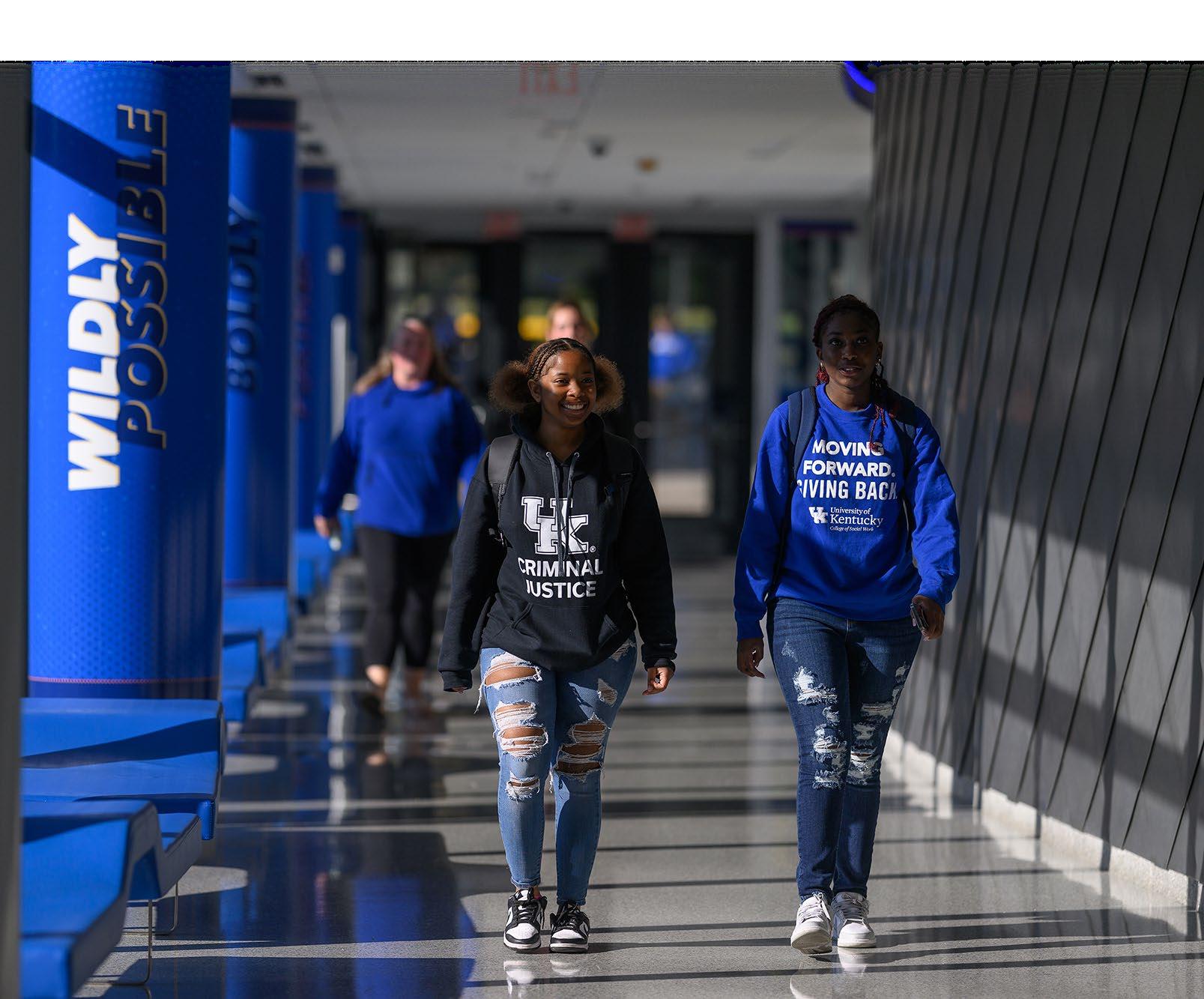
Per University policy, students shall not plagiarize, cheat, or falsify or misuse academic records. Students are expected to adhere to University policy on cheating and plagiarism in all courses. The minimum penalty for a first offense is a zero on the assignment on which the offense occurred. If the offense is considered severe or the student has other academic offenses on their record, more serious penalties, up to suspension from the University, may be imposed. Plagiarism and cheating are serious breaches of academic conduct. Each student is advised to become familiar with the various forms of academic dishonesty as explained in the Code of Student Rights and Responsibilities. Complete information can be found on the Ombud website. A plea of ignorance is not acceptable as a defense against the charge of academic dishonesty. It is important that you review this information as all ideas borrowed from others need to be properly credited.
Per the Academic Ombud, all academic work, written or otherwise, submitted by students to their instructors or other academic supervisors (e.g., program directors), is expected to be the result of their own thought, research, or selfexpression. In cases where students feel unsure about a question of plagiarism involving their work, they are obliged to consult their instructors on the matter before submission.
When students submit work purporting to be their own, but which in any way borrows ideas, organization, wording, or content from another source without appropriate acknowledgment of the fact, the students are guilty of plagiarism.
Plagiarism includes reproducing someone else’s work (including, but not limited to, a published article, a book, a website, computer code, or a paper from a friend) without clear attribution. Plagiarism also includes the practice of employing or allowing another person to alter or revise the work, which a student submits as his/her own, whoever that other person may be. Students may discuss assignments among themselves or with
an instructor or tutor, but when the actual work is done, it must be done by the student and the student alone.
When a student’s assignment involves research in outside sources or information, the student must carefully acknowledge exactly what, where, and how he/she has employed them. If the words of someone else are used, the student must put quotation marks around the passage in question and add an appropriate indication of its origin. Making simple changes while leaving the organization, content, and phraseology intact is plagiaristic. However, nothing in these Rules shall apply to those ideas, which are so generally and freely circulated as to be a part of the public domain.
Please note: Any assignment you turn in may be submitted to an electronic database (such as Turnitin) to check for plagiarism comparison. A penalty for an academic offense, such as cheating or plagiarism, can be as severe as a failing grade on the assignment or failing the course.
The University of Kentucky Student Code of Conduct defines Invasion of Privacy as using electronic or other devices to make a photographic, audio, or video record of any person without their prior knowledge or consent when such a recording is likely to cause injury or distress.
Meetings of this course may be recorded by the instructor. All video and audio recordings of lecturers and class meetings, provided by the instructor, are for educational use by students in this class only. They are available only through the Canvas shell for this course and are not to be copied, shared, or redistributed.
As addressed in the Student Code of Conduct, students are expected to follow appropriate university policies and maintain the security of linkblue accounts used to access recorded class materials. Recordings may not be reproduced, shared with those not enrolled in the class, or uploaded to other online environments.
If the instructor or a University of Kentucky office plans any other uses for the recordings, beyond this class, students identifiable in the recordings will be notified to request consent prior to such use. In anticipation of such cases, students may be asked to complete an “Authorization of Use” form by a faculty member.
Video and audio recordings by students are not permitted during the class unless the student has received prior permission from the instructor. Students with specific recording accommodations approved by the Disability Resource Center should present their official documentation to the instructor.
All content for this course, including handouts, assignments, and lectures is the instructor’s intellectual property and cannot be reproduced or sold without prior permission from the instructors. A student may use the material for reasonable educational and professional purposes extending beyond this class, such as studying for a comprehensive or qualifying examination in a degree program, preparing for a professional or certification examination, or to assist in fulfilling responsibilities at a job or internship.
The University Student Rights and Responsibilities, including the Code of Student Conduct, can be found online at: https://studentsuccess.uky.edu/student-conduct/services/student-rights-responsibilities-uk
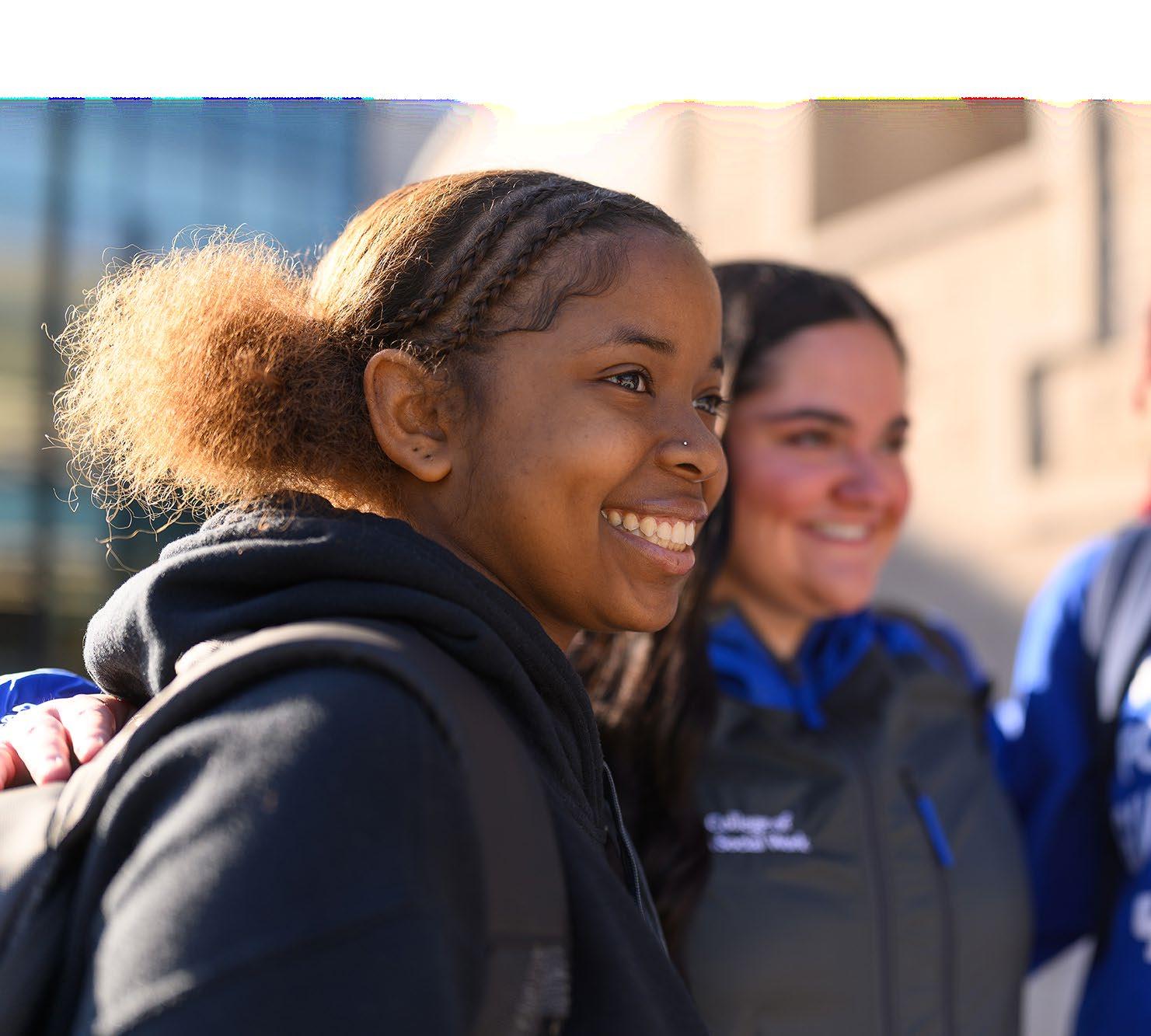
If a student believes that the student’s academic performance was not the basis for the grade, a grade appeal may be filed in accordance with the following:
Policy
Students in the University of Kentucky College of Social Work have the right to appeal a course grade or academic integrity determination if the student’s academic performance was not the basis for the grade or if the instructor did not follow appropriate procedures. Note, a grade appeal is not an attempt to regrade the assignment or project but an assertion of unfair treatment due to being arbitrary or capricious. By definition, an assignment that has a justification for a reduction in grading is not deemed arbitrary or capricious. Students should only appeal when a justification is not present or not reflective of the determined grade.
The Academic Ombud is the officer of the university charged with consideration of student grievances in connection with academic affairs.
Procedure
A student who wishes to appeal an assignment or course grade must submit a written request (email or letter) to the course instructor no later than one week after the grade is released or a narrative comment is provided to the student. The instructor will review the written request and respond with a determination regarding the appeal within one week from the date on which the student submitted the appeal.
If the student wishes to dispute the instructor’s decision, they must submit a written request (email or letter) to the program director no later than one week after the date the instructor sent a response notification to the student. The program director will review the appeal, develop a consensus, and notify the student and the instructor of the final decision within one week of the appeal submission. If the student wishes to dispute the program director’s decision, they must submit a written request (email or letter) to the College of Social Work’s Associate Dean for Academic and Student Affairs no later than one week after the date the program director’s notification is sent to the student. The Associate Dean reviews the appeal and notifies the student of the final decision within one week of the appeal submission. The decision made by the Dean’s office is final.
Appeal to the Academic Ombud
If a student wishes to appeal any final decision made by the College of Social Work Dean’s Office, they may submit a request to the Academic Ombud for potential appeal to the University Appeals Board
The Student Code of Conduct stipulates expectations for student conduct by identifying the core values of the University of Kentucky and provides a designated process to be implemented when students fail to uphold the core values of the institution.
The Family Educational Rights and Privacy Act (FERPA) of 1974, as amended, is a federal law that protects the privacy and confidentiality of personally identifiable information contained within student education records. The University of Kentucky complies with FERPA’s confidentiality protections and adheres to procedures dealing with student education records and directory information. Further information: https://registrar.uky.edu/ferpa and https://studentsuccess.uky.edu/student-conduct/ferpa
Consent for Release of Information on Academic Record and Progress:
Release of Information
Student Ambassadors are a select group of students that represent and promote the University of Kentucky and the Criminal Justice programs. Activities include assisting with recruitment events such as Open Houses, Big Blue Nation Orientation, Merit Weekends, etc. Applications for the upcoming academic year are accepted in the spring semester. Eligible students will participate in an interview. If chosen as an ambassador, students are required to participate in trainings and communicate their availability with the program coordinator.
For additional information, please contact CoSWExperience@uky.edu
Students may receive technical support with email, Canvas, and myUK through the IT Service Desk. Software downloads for students are also available through their website. (859) 218-4537 or 218help@uky.edu
http://www.uky.edu/ukat/help
The student listserv is the primary channel of communication between the College and students. Important announcements are sent out on the listserv, including priority registration advising information, campus events, and job opportunities. All incoming students are automatically subscribed to the graduate student listserv.
127 Funkhouser Building
University of Kentucky
Lexington, KY 40506-0054
(859) 257-3172
https://studentsuccess.uky.edu/financial-aid-andscholarships
Students with documented physical, learning, or temporary disabilities may receive assistance and support from the Disability Resource Center at 725 Rose Street in the Multidisciplinary Science Building, Suite 407, (859) 257-2754.
For more information, visit https:// studentsuccess.uky.edu/disability-resourcecenter
In order to foster an environment of respect and dignity for the dignity and worth of all members of the university community, the University of Kentucky is committed to maintaining an environment free of prohibited discrimination. Any member of the University of Kentucky community who believes they have experienced discrimination, harassment, or retaliation may bring their concerns to the Office of Equal Opportunity(OEO). A staff member of OEO is available to provide information of the investigative and resolution process.
https://oeo.uky.edu/
Title IX and University policy protect pregnant or parenting students from discrimination in education programs and activities.
The University will try to ensure that you can continue participating in classes and extracurricular activities by providing you with reasonable adjustments to participate, excusing absences due to pregnancy and childbirth for as long as medically necessary, and allowing you to make up missed work. For accommodation information and additional resource information visit : https://oeo.uky.edu/key-priorities/ pregnancy-and-parenting
Any student currently enrolled in a degree program at the University of Kentucky and alumni up to 6 months are eligible for unlimited use of career services including individual appointments, mock interviews, workshops, on campus interviewing, Wildcat CareerLink and the use of the career resource library. For more information, visit https://studentsuccess.uky.edu/stuckertcareer-center.
Official transcripts may be requested through the Office of the Registrar and can be requested online, in person, or by mail. Unofficial transcripts may be downloaded in a student’s myUK account. For more information, visit https://registrar.uky. edu/transcripts
Institutional Neutrality Policy
https://uknow.uky.edu/sites/default/files/ Institutional%20Neutrality%20Policy.pdf
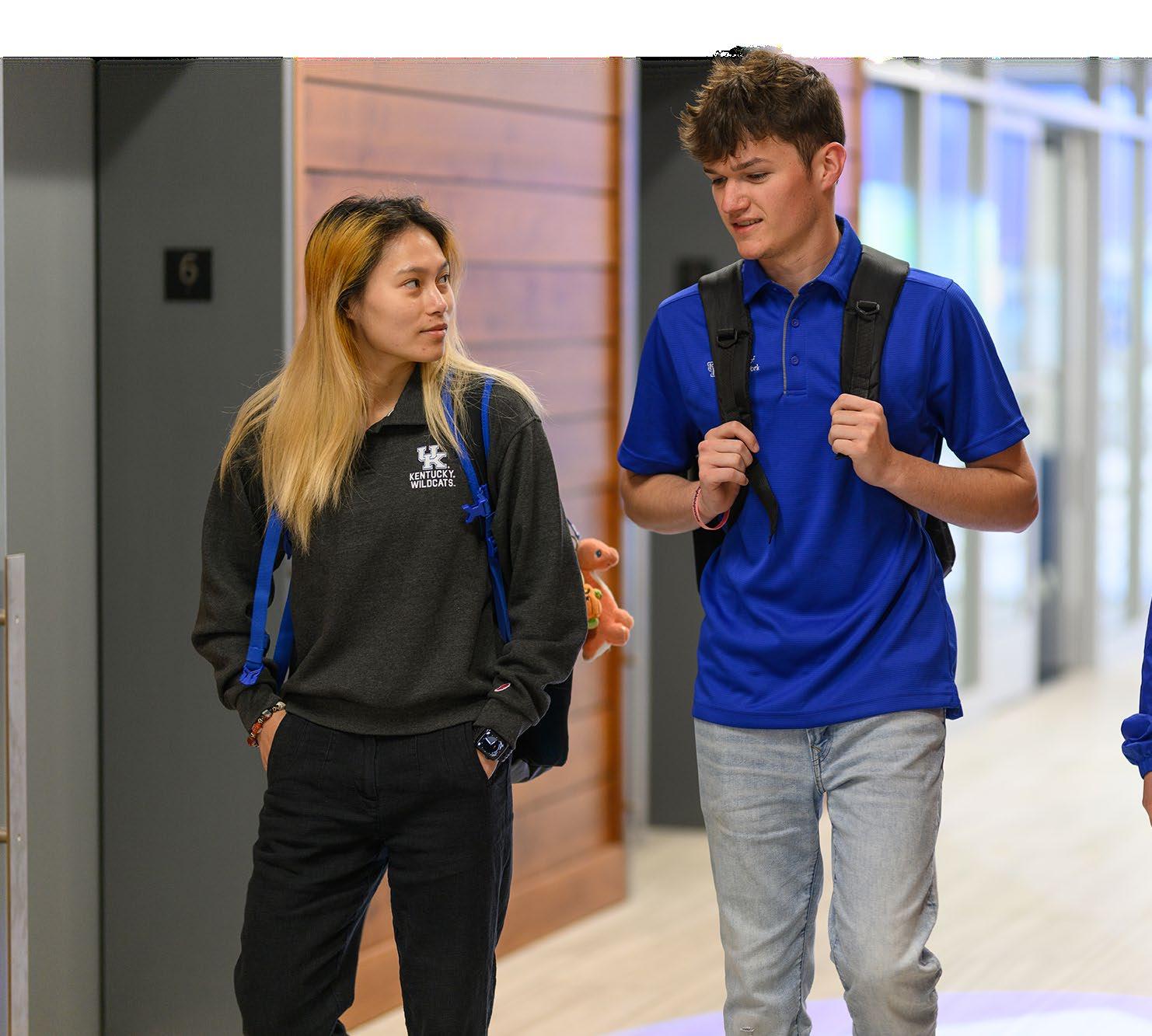
Integrated Success Coaching is a free service for UK students to help learn skills to be a successful college student: https://studentsuccess.uky. edu/transformative-learning/services/integratedsuccess-coaching.
The Robert E. Hemenway Writing Center is located in the basement of W.T. Young Library, Room B108B, in the Hub. Graduate students and undergraduate consultants offer individual and group consultations in Face-to-Face, Online, and E-Tutoring Consultations on academic assignments and professional projects. The Writing Center assists students at every stage of the composing and communicating process. http://wrd.as.uky.edu/writing-center
TRACS is a physical and virtual one-stop hub where students can come for a quick referral to support services or receive direct clinical support for a range of mental health needs and crises. Students can receive help connecting with resources to support basic needs (food and housing, assistance dealing with trauma related to a recent crisis, clinical assistance for mental health, etc. TRACS is located on the 3rd floor, East Wing of the Gatton Student Center. https:// studentsuccess.uky.edu/get-help
The Counseling Center provides mental health services, including individual and group therapy, available for students in Kentucky. Students can access the Counseling Center through a referral from TRACS. https://studentsuccess.uky.edu/ counseling-center
Talkspace is a free benefit for UK students which provides students with virtual mental health resources including asynchronous messaging, mental health tools, and up to two live sessions a month with therapist in all 50 states. https:// studentsuccess.uky.edu/well-being/services/ talkspace
Mindfulness and meditation app that features services such as guided meditations, sleep podcasts, curated playlists, workouts, free year-long subscription to all students. https:// studentsuccess.uky.edu/well-being/services/ headspace
The Big Blue Pantry is open to any University of Kentucky student with a valid UK ID experiencing food insecurity or hunger. The Big Blue Pantry is in 016 Frazee Hall. https://studentsuccess.uky.edu/ financial-wellness/services/big-blue-pantry
